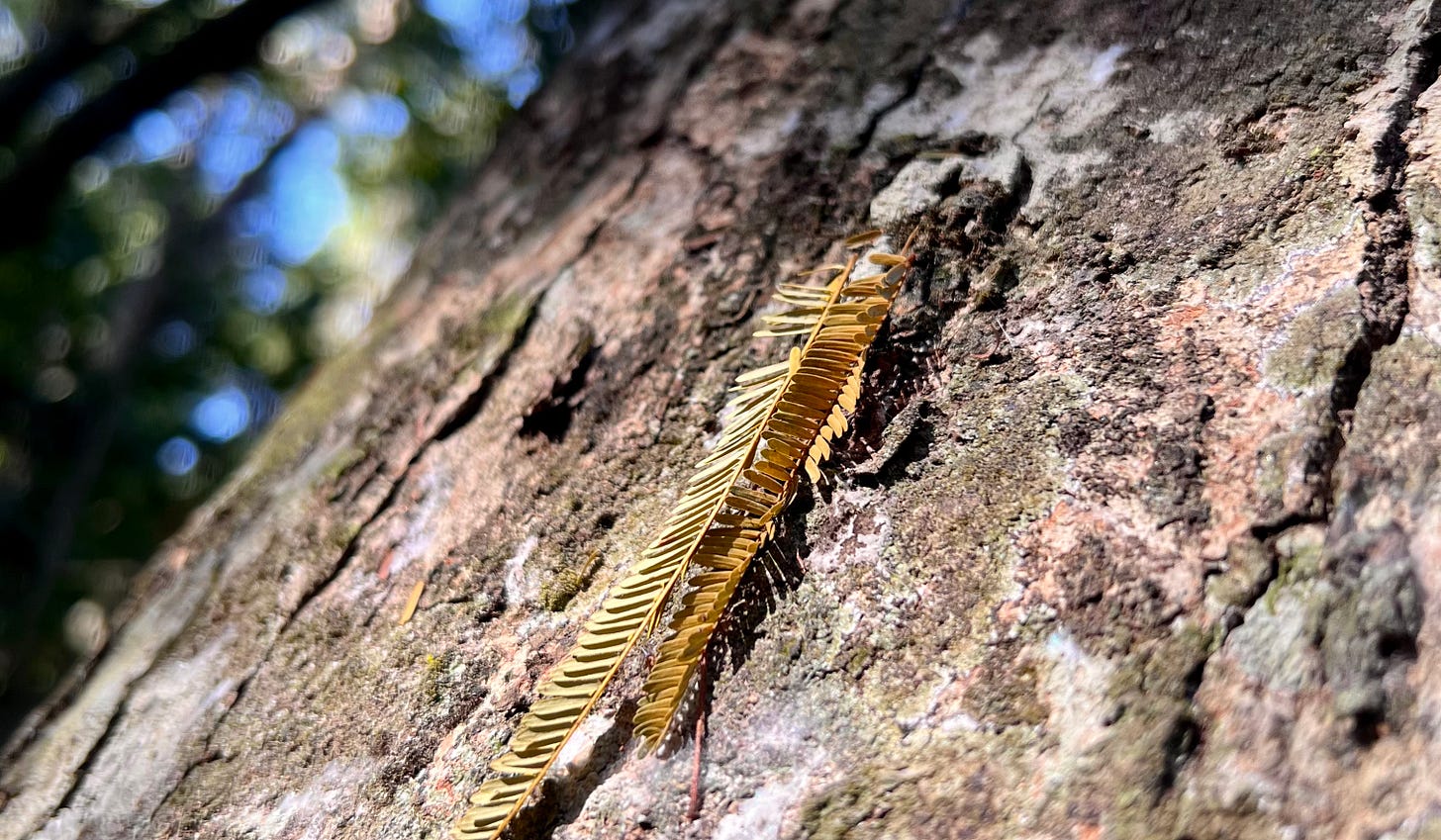'Selah Moments': The Gift of Attention in Times of Great Urgency and Threat
A reflection as COP29 closes on why we may need to slow down to speed up.
The term “Selah,” originating from the Psalms in the Hebrew Bible, is often interpreted as a directive to pause, reflect, and meditate on what has just been said or experienced. In these times of urgency and upheaval, I believe we must not only embrace such ‘Selah moments’ but actively create them.
I wasn’t at COP29 this year, but I know how it feels to emerge from a difficult climate COP frustrated, angry, and exhausted. To feel your adrenaline still surging at 100 miles per hour while your body is broken, your soul drained. This post is written in recognition of this moment that I imagine exists for many, and for anyone else who feels the weight of the world and the exigency of circumstances right now. It is also for those who, amidst the urgency, long for a different way of being. These are my thoughts unraveling; they may not be coherent, and that’s okay.
“Instructions for living a life: Pay attention. Be astonished. Tell about it.”
– Mary Oliver, Red Bird
Sometimes I am forced to slow down because I am dyspraxic. Often, this enforced change in pace turns out to be a gift. A couple of weeks ago, while in the Whitsundays in Australia, I faced a choice. I was with a small group doing the tourist thing in beautiful Cape Hillsborough, a coastal national park, when we came across a challenging obstacle. Poor balance and coordination made an ascent to a lookout point difficult for me, so I decided to stay put in a small patch of forest instead.
I settled on a smooth, warm rock, enveloped by the interplay of light and shadow as leaves on ancient trees swayed gently in the wind. At first, my eyes were drawn to the roots—twisting and snaking across the forest floor. As they adjusted to the darker crevices around me, I began to notice subtle movements: glistening webs, Golden Orb spiders suspended in their centres, some so large it amazed me that the web held their weight. I heard the rustling of birds in the trees above, wings stretching, branches creaking. Butterflies flitted at the edges of my vision.
Over forty minutes in that small corner of the forest, I witnessed a vibrant, intricate world—a world I would have missed entirely had I simply passed through. As Bayo Akomolafe writes in These Wilds Beyond Our Fences, “The world shows up differently when you slow down and notice its becoming.”
Paying attention can be a radical act of love and care—toward the natural world, others, and even ourselves. For my friends and colleagues recovering from what sounded like a gruelling COP29, perhaps this practice of attention could offer a way to restore and reconnect.
It is not easy to practice attention in a distracted, hurried world. The immense threats facing humanity and nature demand urgency, leaving us all feeling equally rushed and anxious. It is right we feel that urgency to move at pace. But in these moments, I think it is even more critical to connect with the idea of relationality—the recognition that we are always in connection with others, both human and more-than-human. Relationality anchors us in times of stress and opens us to new ways of seeing.
“What if we were to attend to the lines, the threads, the entanglements of life, rather than seeing ourselves as fixed points in space?”
– Tim Ingold, Being Alive: Essays on Movement, Knowledge and Description
COPs, particularly difficult ones, can make us feel stuck, as if we are wading through treacle, trapped in fixed points in space. They often present the illusion that the only path forward is linear. It isn’t. Hope lies in the entanglements, in the threads.
Attention reveals the multiplicity of worlds around us—coexisting, intricate, and alive. Drawing from Arturo Escobar’s concept of the Pluriverse, we might frame attention as an act of honouring diverse ways of being and knowing. As Escobar writes in Designs for the Pluriverse, “The Pluriverse is not only a proposal for the re-worlding of worlds but also for the decolonizing of thought, attention, and imagination.”
Without attention, dominant narratives flatten our understanding, erasing the complexity and beauty of the realities we inhabit. To address the existential risks we face, we must shift our perspective: from fast to slow, from eyes wide shut to eyes wide open, from comfort to discomfort, so we might come unstuck.
In this light, a Selah moment—a pause for contemplation and reverence—becomes a powerful practice. Thich Nhat Hanh writes, “The pause is a place of meeting, where the past breath and the future breath meet. In the pause, we can listen to the silence that holds everything.” Let us then stop, breathe, be. Not so we might slow down, but so we might speed up.
Perhaps deep care for ourselves and others in this moment looks like pausing—not only as a restorative act but as a reciprocal exchange with the world. To create Selah is to invite spaciousness, attention, and possibility into our lives and the systems we are working to transform.
Let us sit with the entanglements, the threads, the webs of life. In their complexity, we may find hope.


